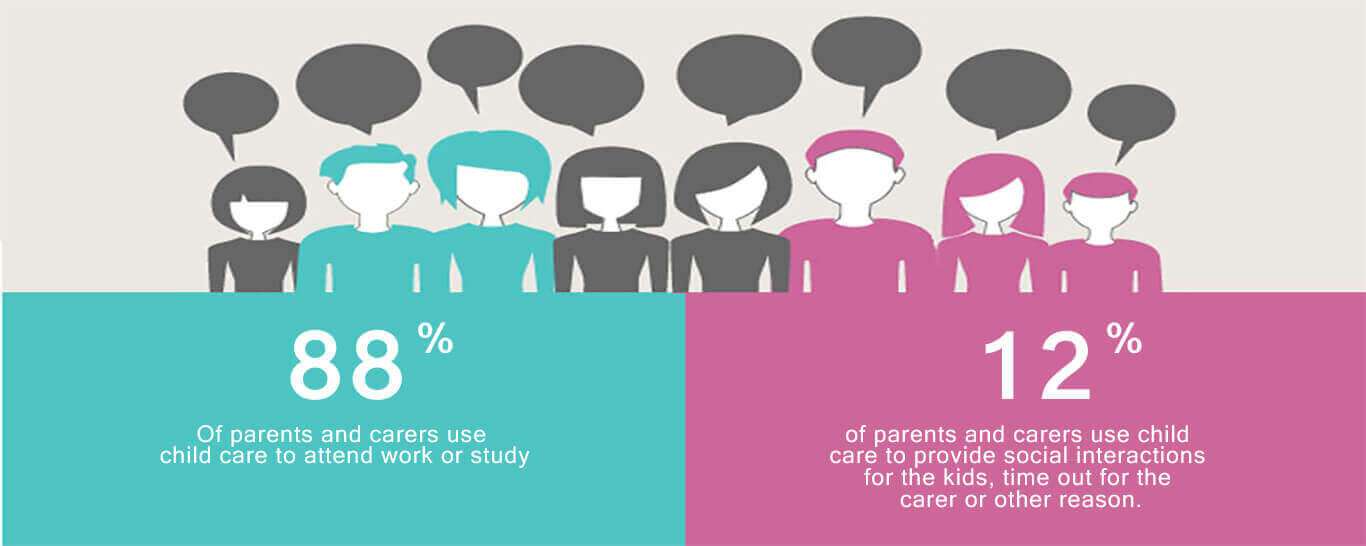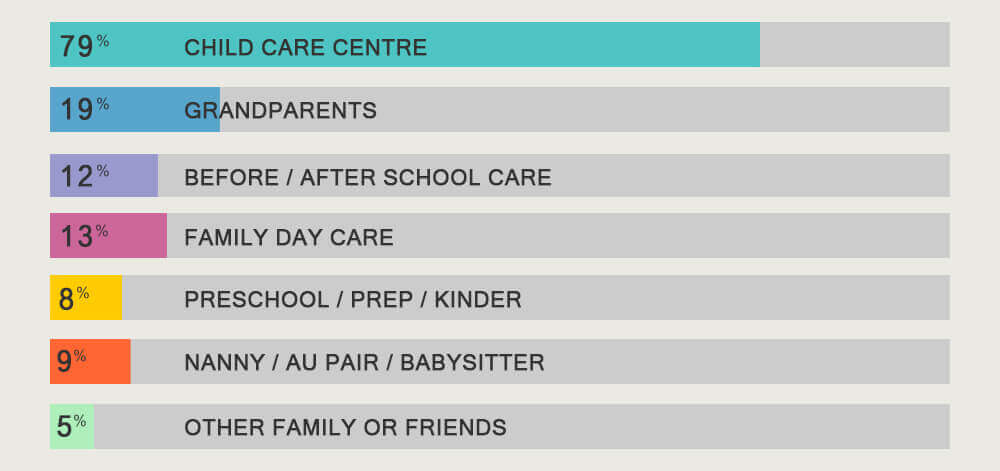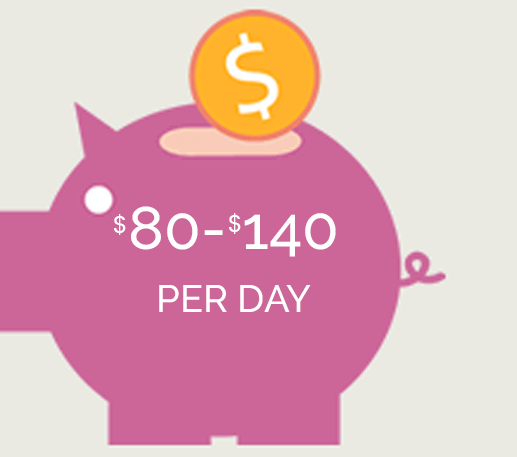THE STATE OF PLAY FOR AUSTRALIAN FAMILIES
For close to 15 years CareforKids.com.au® has been helping Australian families manage the challenge of finding high quality child care where and when they need it.
Every year CareforKids.com.au asks Australian parents and carers to share their views on achieving balance between work and family life and what they think about our child care system
The results offer unique insights into how our system is working at the grass roots level and what needs to change moving forward.
METHODOLOGY
This is our 12th annual survey and included 1861 Australians with children in care or considering care. The survey was conducted online in April 2017.
THE BEST BITS
The 'norm'
Unsurprisingly the main reason parents and carers use child care is to attend work or study (88 per cent) with just 12 per cent saying they used child care to provide social interaction for the kids, time out for the carer or another reason.

The survey showed that 61 per cent of kids start child care when they are between 7-18 months old and 73 per cent of kids are in child care three or more days per week with 88 per cent there for eight or more hours per day.
Most families (72 per cent) rely on one type of child care and typically that service is long day care (79 per cent), however families also use grandparents, outside school hours care and family day care.
THE QUEST FOR CARE
67 per cent of respondents were able to secure the care they wanted and while 55 per cent of parents said they found the experience of looking for care good or very good the remaining 45 per cent said they found the process difficult or extremely difficult and frustrating.
65 per cent of respondents said they went on one or more waitlists and for 74 per cent of parents this incurred a cost of between $0-$40 per waitlist!
The cost!
71 per cent of families are paying between $80-$140 per day before rebates
Interestingly a full 68 per cent of respondents claimed that care provided by grandparents should also be eligible for the rebates.
The cost of child care is still a huge issue and while 66 per cent of families rate their early childhood provider as excellent 71 per cent of families are paying between $80-$140 per day before the CCB and rebate have been applied, which for most families (55 per cent) equates to 10-30 per cent of family income.
The good news is that 84 per cent of families say they have figured out the current CCB/CCR system and are claiming what they are eligible for.
Interestingly a full 68 per cent of respondents claimed that care provided by grandparents should also be eligible for the rebates.
Which care are you using?

THE QUALITY OF CARE
This year we asked parents to comment on various aspects of their early childhood service, a massive 72 per cent of parents and carers believe play not education should be the focus in early childhood settings and a similarly huge 91 per cent of parents and carers believe unvaccinated children should be barred from child care settings.
THE GREAT BALANCING ACT
An important part of our annual survey is to try and gain greater understanding into how working parents achieve balance between their professional and personal responsibilities.
Balancing life as a working parent
Disappointingly only 10 per cent of respondents said the employer helps staff find child care but a solid 79 per cent said their employer was either flexible or very flexible in their approach to working parents. To that end 67 per cent of respondents have asked for flexible work options but only 51 per cent of those requests were approved.
Sadly 82 per cent of working parents felt they had been discriminated against by other parents, colleagues or family and friends when they returned to work after having a child.
Sometimes feel like things are spiralling out of control? Join the club 84 per cent of respondents said they struggle to achieve balance between work and family life at least some or all of the time.
This may in part be due to the fact that the responsibility of managing family commitments such as appointments, sick days and drop offs is shared equally in only 34 per cent of house with working mums doing the majority of the work in 52 per cent of households.





YOUR COMMENTS
What could the government do to improve the child care situation in Australia?